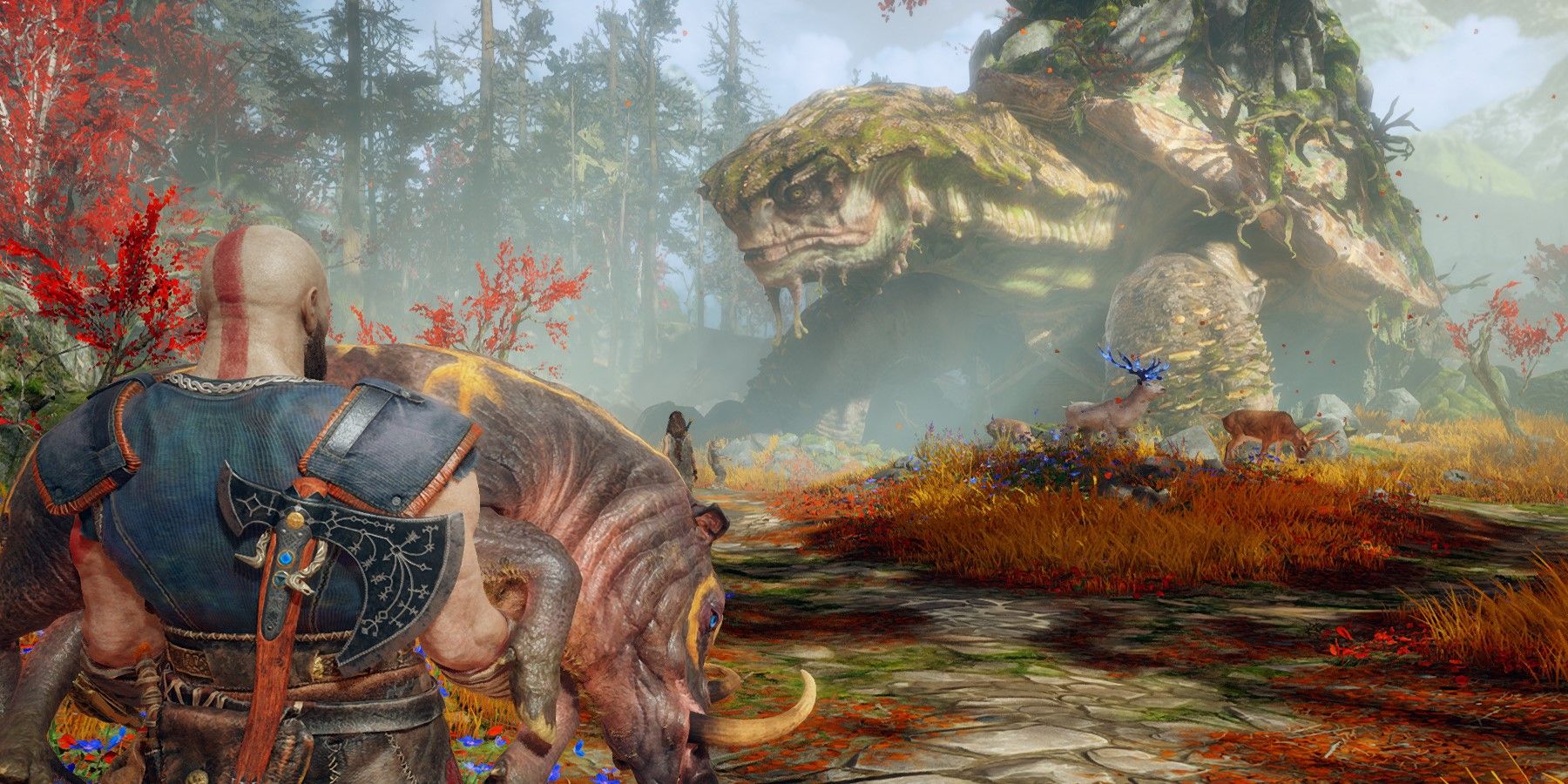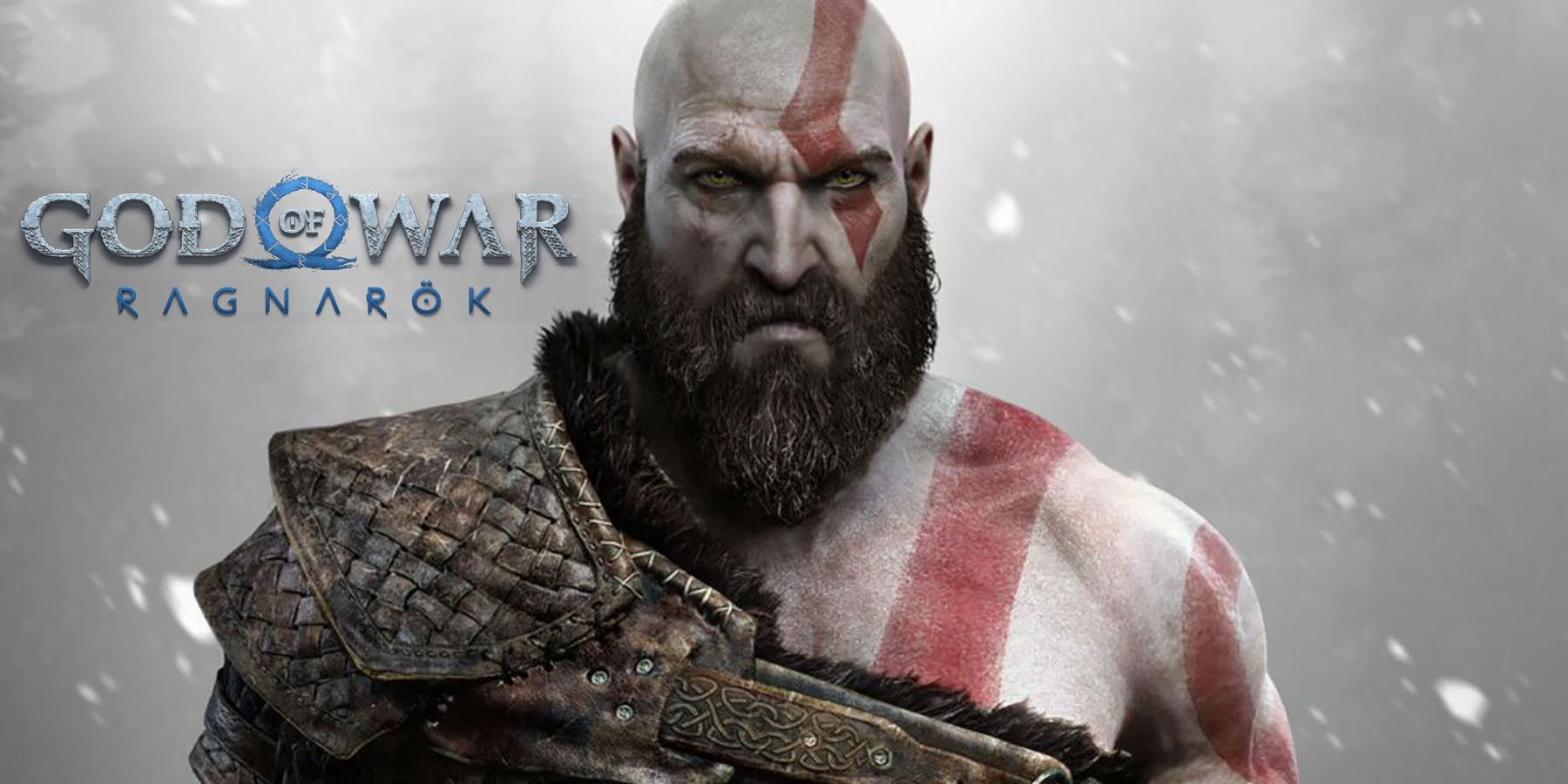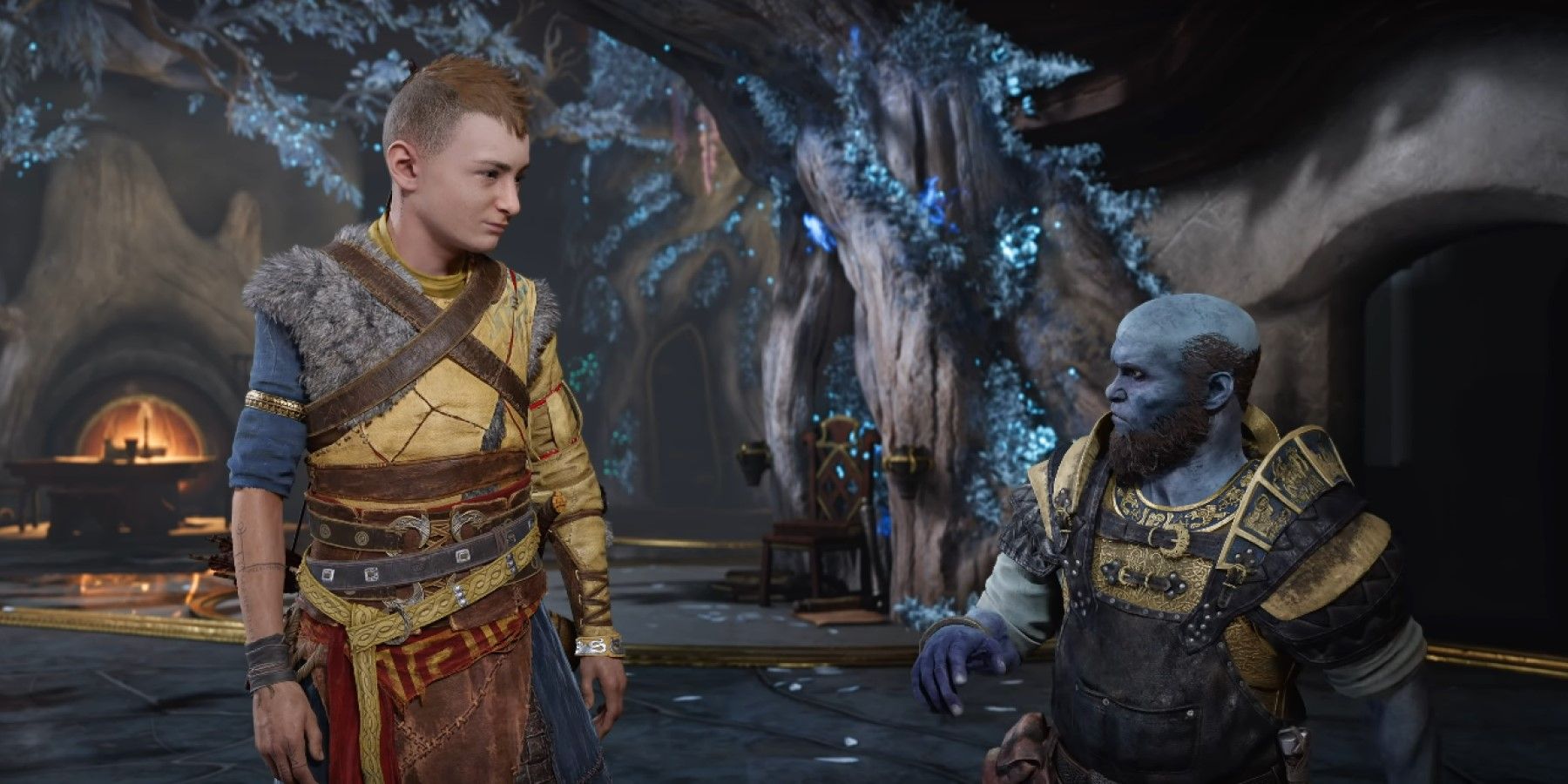For most of God of War's history, the Spartan warrior Kratos has traveled the realms of Greek mythology, facing off against some of the mightiest gods, including his own parents. However, with 2018's God of War, Santa Monica decided to reinvent the franchise by swapping out the fixed camera for a more modern over-the-shoulder perspective and arming Kratos with the frosty Leviathan Axe. Most notably, however, Kratos is no longer in the realm of Greek mythology, and instead, he finds himself among Norse gods in the Nine Realms.
Santa Monica's latest project, God of War: Ragnarok, is expected to release in 2022, and it will be the final part of the Norse chapter of the God of War franchise. While this is exciting, as it opens up the opportunity for the series to explore other mythologies from around the world, it does mean that the Norse story will be a relatively short one. With the games drawing so heavily from the Norse Ragnarok myth, this could mean that there may not be enough time for God of War: Ragnarok to slip in a happy ending.
Norse Mythology Does Not Paint a Good Picture for God of War: Ragnarok
As the game's title suggests, God of War: Ragnarok's inspirations include the Norse Ragnarok myth, and this is hinted at during the final scenes of 2018's God of War. When snow falls, Mimir warns Kratos and Atreus that the three-year-long Fimbulwinter has begun, meaning that Ragnarok will follow soon after. When one analyzes Ragnarok within Norse mythology, it does not paint a good picture for the heroes.
The word Ragnarok is derived from Old Norse, and it can be interpreted to mean "the doom of the gods" or "the final fate of the gods." The myth entails a series of events foretold in Poetic Edda. Ragnarok will bring numerous natural disasters that will cause large-scale destruction, along with floods that will submerge the entire world. Epic battles will ensue between the gods, including central figures such as Odin and Tyr, causing many gods to die.
Everyone will know when Ragnarok has arrived thanks to the god Heimdall, who lives where the rainbow bridge Bifrost meets the sky, and he will blow his horn called Gjallarhorn. A central figure in Ragnarok is Loki, a Norse trickster god. During the events, Loki, joined by the Jotunn frost giants, wars against the gods, and he fights Heimdall. The two prove to be fierce competitors, and they mortally would each other. Following their deaths, the sky will blacken, and the Earth will be engulfed by waters.
In God of War, the conflicts between the gods have already started. In 2018's God of War, Kratos killed Baldur, earning him the ire of Freya who has vowed revenge. She is joined by Thor, who also wants his pound of flesh from Kratos because Baldur is his half-brother. Thor may prove to be a powerful foe, because he wields the Mjolnir hammer. Additionally, there is a chance Kratos and Atreus may cross paths with Odin in God of War: Ragnarok, as his arrival has been hinted at heavily, especially by Mimir who claims Odin tortured him. There is no telling how far the warring of the gods will go, and whether it will extend to Kratos and Atreus turning against each other.
It is also worth paying attention to Loki, as it is hinted that Atreus is the trickster. As is explained at the end of 2018's God of War, Atreus' mother originally named him Loki. This may be an ominous sign, as Loki does not make it out of Ragnarok alive. It should be noted, however, that the God of War series has always taken liberties with mythology, and there is every possibility that Santa Monica will not stick strictly to the Norse mythology script.
There Is No Time for Post-Ragnarok Myth in God of War: Ragnarok
The Ragnarok myth is not all death and destruction, however. Like many other myths around the world, there is a cyclic structure, and death and is followed by rebirth. According to the myth, once the waters recede, the Earth will reappear more fertile than ever, with the ground rich with crops. A few of the children of the gods will survive, and they will rule the new world and share the stories of their forefathers. Humans will also repopulate the Earth thanks to Lif and Lifthrasir who survive Ragnarok by hiding in the world tree Yggdrasil. This will mark the beginning of the era of new life on Earth, with more stories and myths to be made.
Although a beautiful vision is presented, with only two games set within Norse mythology, there may not be a chance for gamers to enjoy or experience this post-Ragnarok world, especially when Ragnarok covers so many events on its own. Perhaps in a trilogy, there would have been the opportunity to see what happens after the final battle of Ragnarok, but with the current structure of the myth, fitting it into a two-parter seems unlikely. Furthermore, judging by what is foretold in the Ragnarok myth, things may not be looking good for gamers hoping for a happy ending in God of War: Ragnarok.
With the release of Ragnarok inching closer, gamers may receive some answers they have been desperately waiting for. Soon, players will discover who Angrboda is, how Atreus will cope with being a god, and whether this is Kratos' final game. Like prior titles from Santa Monica, the game is likely to be a visual splendor and a series of non-stop high-energy action sequences. However, players probably shouldn't expect too many heartwarming moments, as the story may be a tragedy.
God of War: Ragnarok is expected to release in 2022 on PS4 and PS5.



